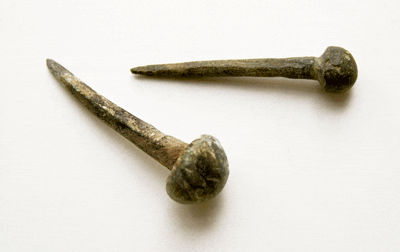from the desk of…
by Philip Swyers, Commissioner –
We spend most of our Sundays in the Western Territory conducting corps meetings and major events from Alaska to the borders of Mexico. Recently we traveled to beautiful downtown Lodi, Calif., to visit with our soldiers, officers and a newly energized advisory board.
The corps and advisory board conducted a capital campaign to raise funds for the shelter and other much needed projects. The campaign well exceeded the goal of $1.7 million, and the floodgates of joy exploded in that community. We were invited to visit Lodi to see the new building and its people. Sunday school and morning worship were packed to the walls with soldiers and friends of the Army. What a thrill it was to look out over a congregation filled with people who had come to worship!
The advisory board met us at the shelter for lunch to share the exciting accomplishments of the past, along with their plans and desires to build a stronger Army for the future. It was a wonderful time of possibility thinking.
Following the luncheon meeting, we were given a tour of the new building where lives are being changed through programs designed to move men and women out into society as productive citizens. Hanging in one of the rooms was a familiar sign to remind the resident about life. This sign written by an unknown author has been read and prayed by many of us. It states: “God, grant me the serenity to accept the things I cannot change, courage to change the things I can, and the wisdom to know the difference.”
If there are things in our life that are wrong, then we are under obligation to change them. If, however, there are things that we cannot change, it is a waste of our time and energy to wrestle with the impossible. The problem arises in the difficulty of distinguishing between the two. How does one know what can be changed and what must be left alone? A lot of people struggle with that problem, trying to sort out the changeable from the unchangeable. The resident who slept in that shelter room is considering and wrestling with that problem.
As we walked through other rooms, I had two thoughts. First, there are some things in our lives that we can and need to change.
In one of the oldest books in the world, the Creator of mankind finished his work and said to the man and woman, “Fill the earth and subdue it and have dominion over everything.” If the point of this ancient story is right, then it’s apparent that we are intended to help make our world better. Once in awhile someone seeking to comfort us about our problems will advise us to take things as they come. In some ways that is the most dangerous advice we can receive. Suppose Abraham Lincoln had taken things as they were. Suppose no doctor ever challenged a disease. Suppose a teacher had accepted that he could not change the ignorant mind. What a different world it would be if someone had not said, “Give me the courage to change the things I can.”
A well-known American preacher who speaks about possibility thinking points out that in every circumstance there are opportunities—no situation is hopeless. The sign on that resident’s wall simply said, “God give me the courage and the determination to change the things I can change.”
Secondly, there are some things that do appear to be inevitable in our world. The Bible gives an account regarding some people who were trying to decide how to stop the great teacher from his work among the hungry and sick of that day. One man addressed his comrades saying, “Let the teacher alone. If his work is wrong, he will not succeed. If he is right then we can’t stop him.” What sound advice!
By the end of our tour, we realized that we were looking at men and women in the process of changing their lives, not alone, but with the help of God and his people. Our hearts were renewed as we thought of William Booth whose journey into parts of London brought about a ministry that changed the lives of many, and that same ministry continues to change lives today.
Lodi is an example of what happens with possibility thinking and with the prayer that God will grant us the wisdom and the courage to change the things we can. I think that prayer could be stated as: “God give me the courage to change the things I can change, the strength to wrestle with the things that can’t be changed, and above, all the wisdom to use everything that happens for something good.”
An advisory board with new possibility thinking, a seeking soldiery and an officer couple who are dedicated to making a difference are really the heartbeat of what the Army is all about.
Dear friends, check your heartbeat and change the things that you can.












